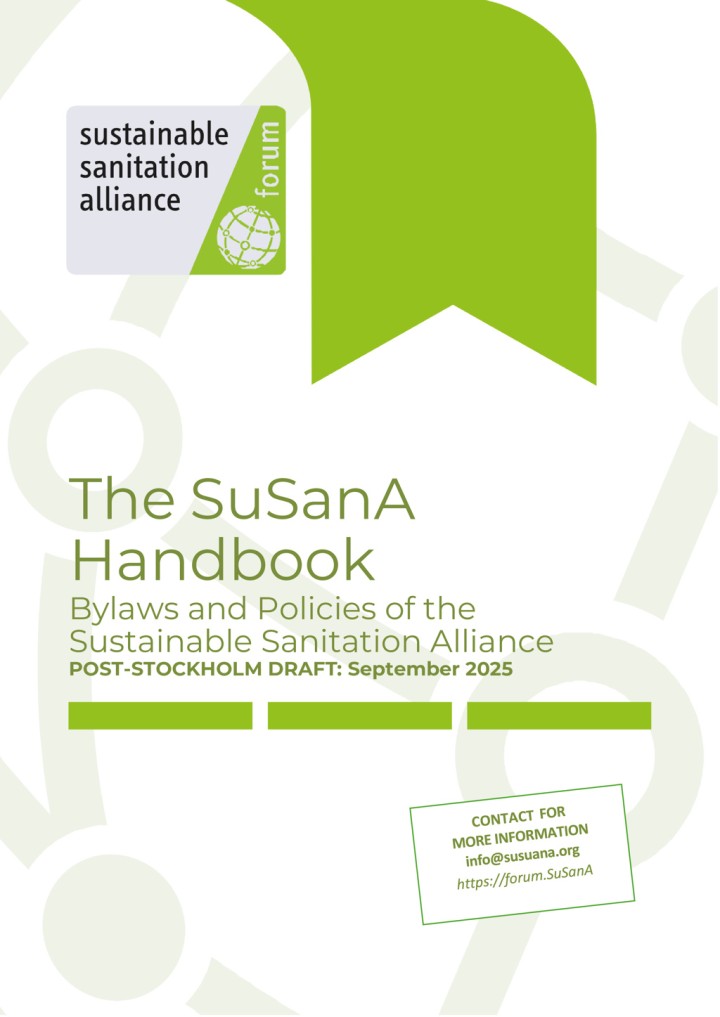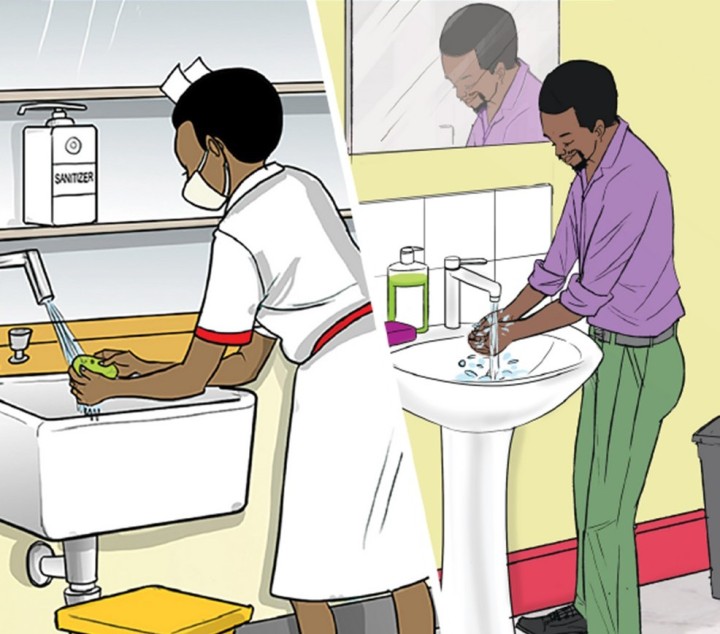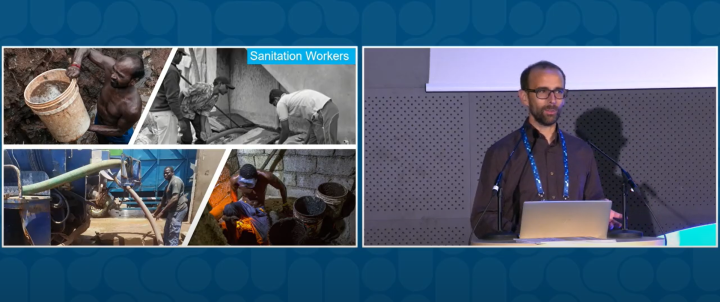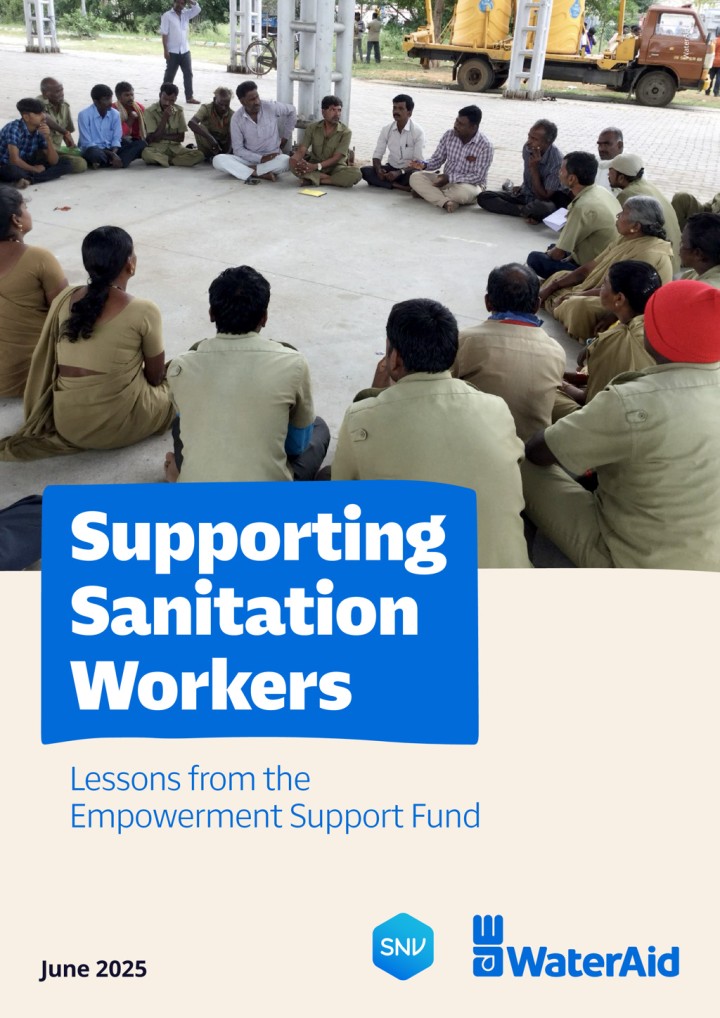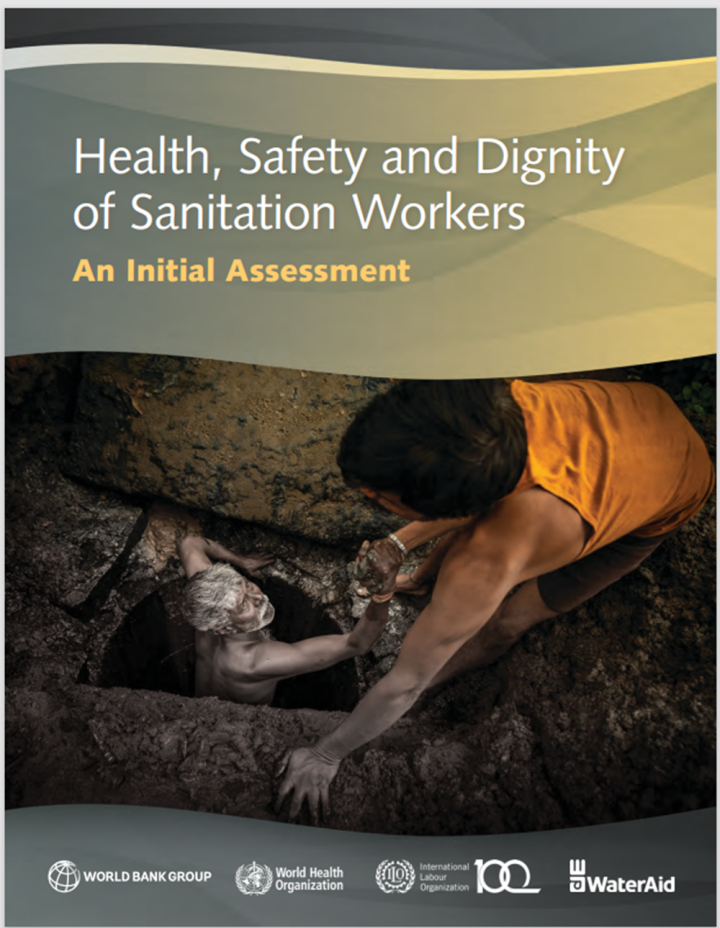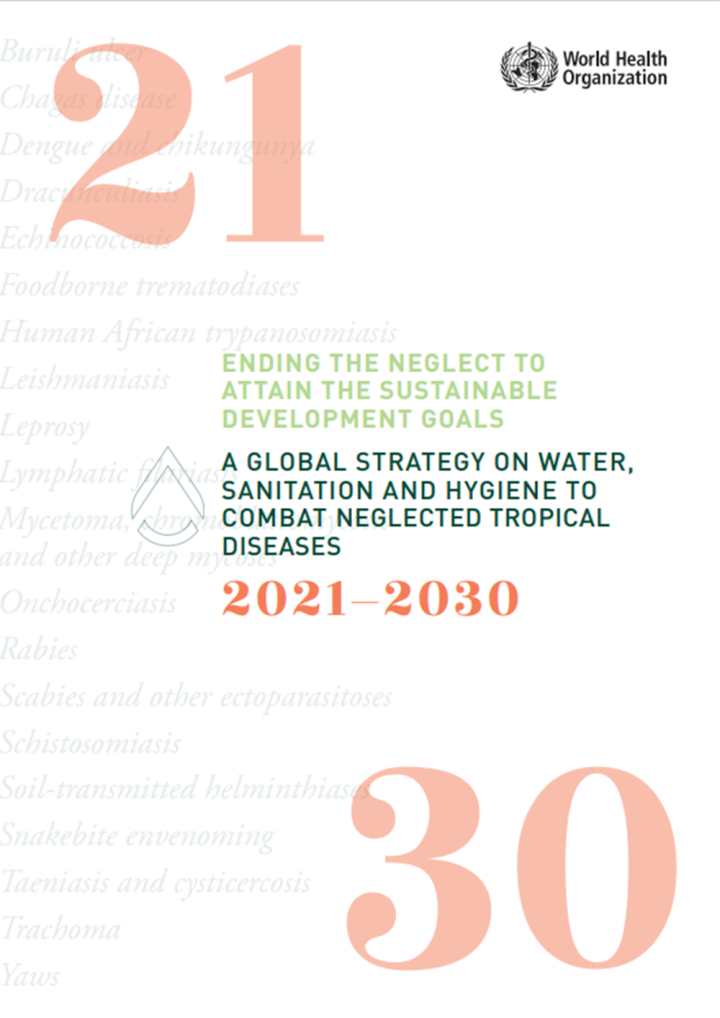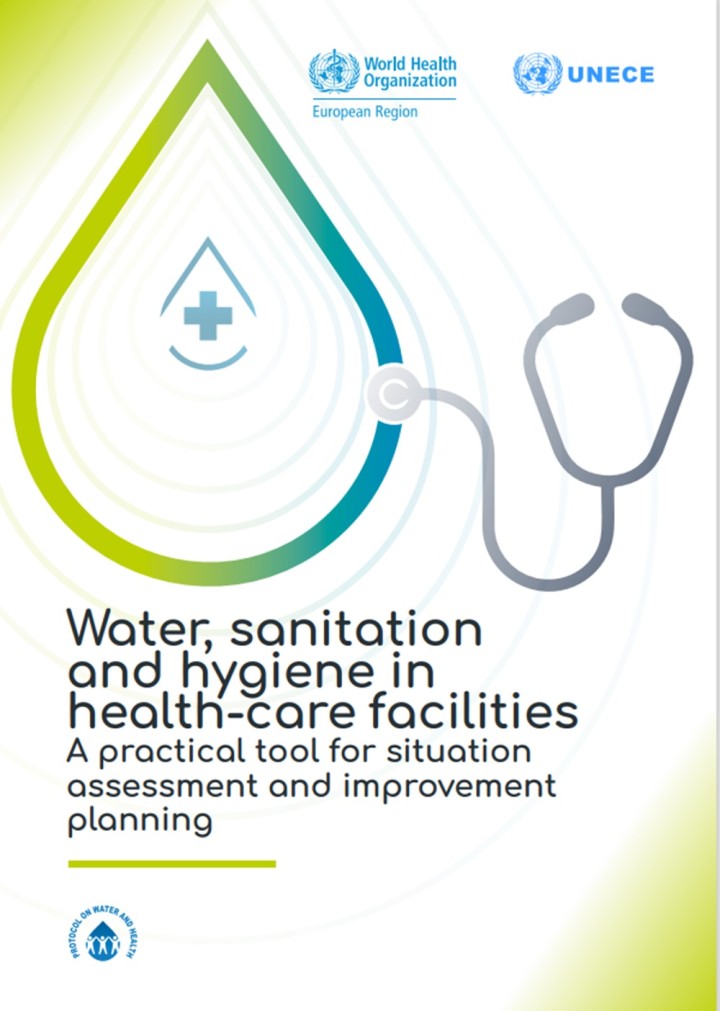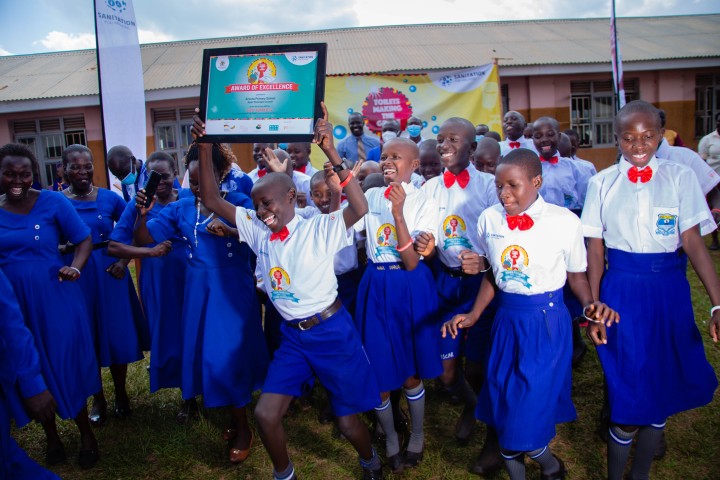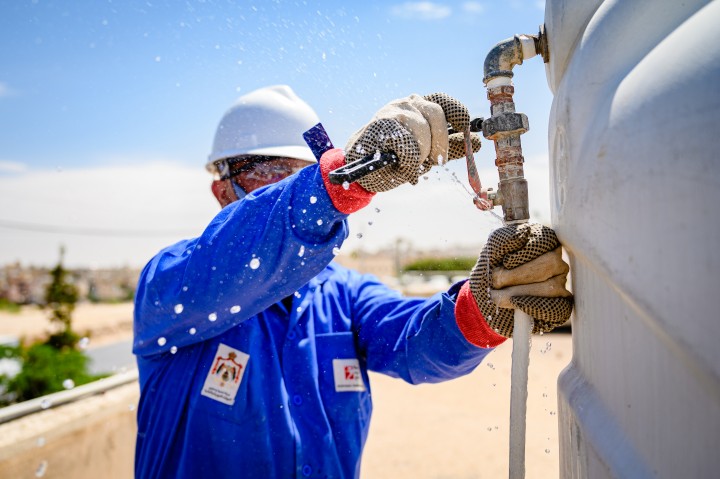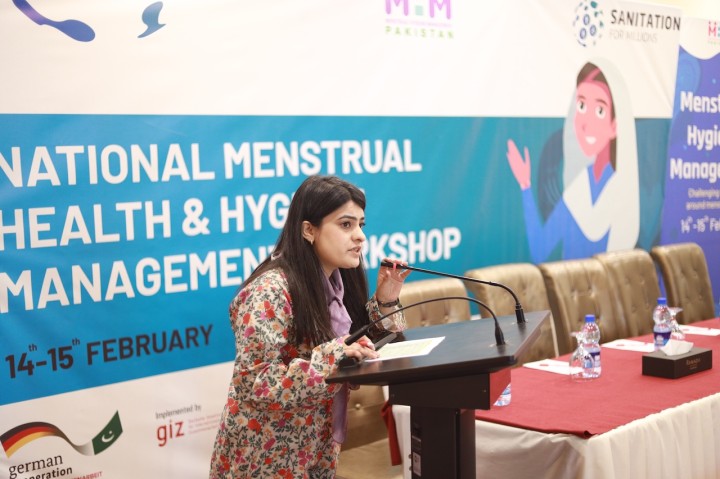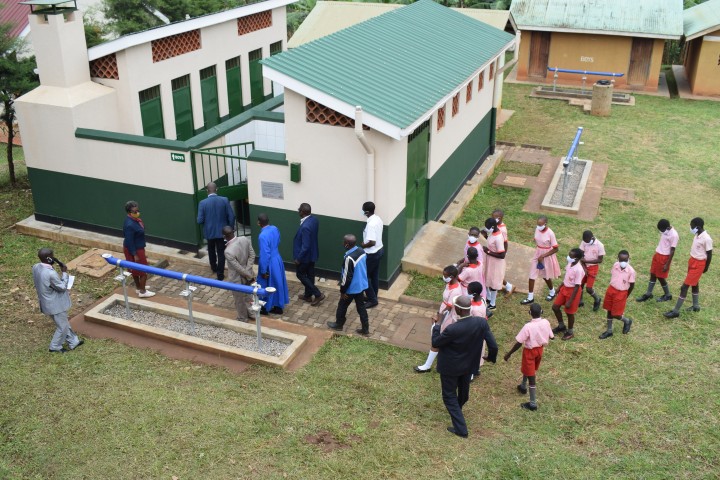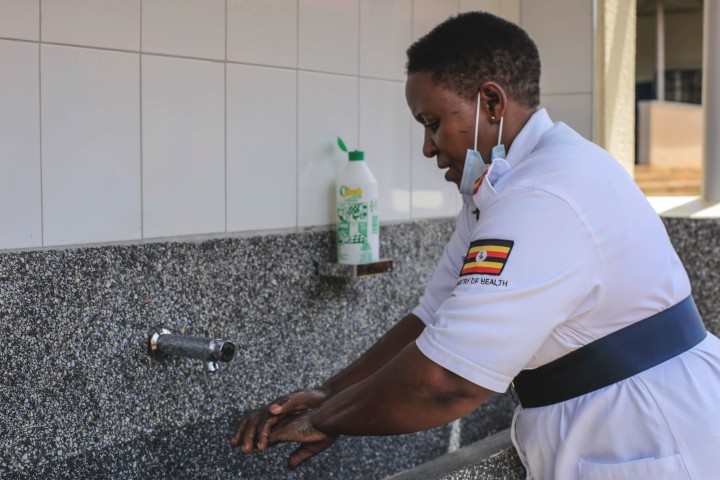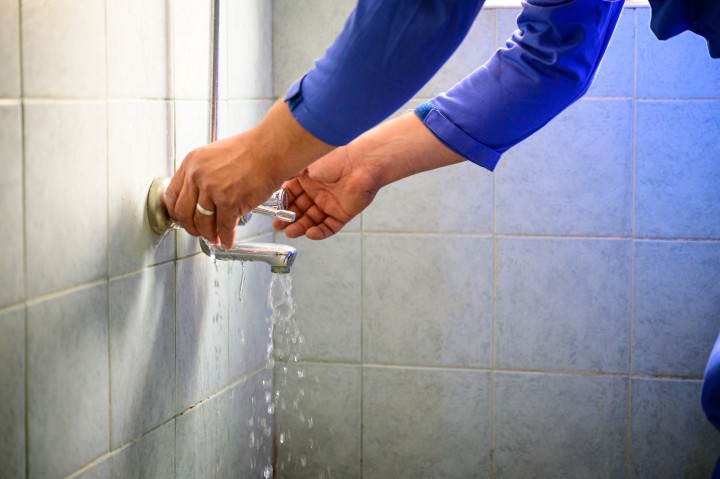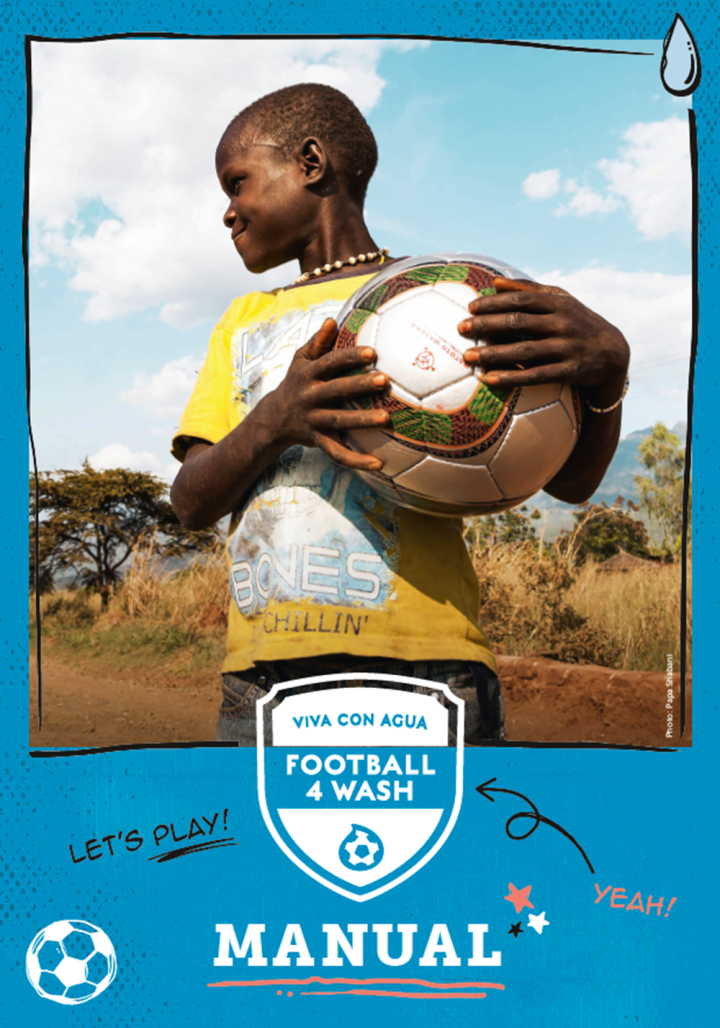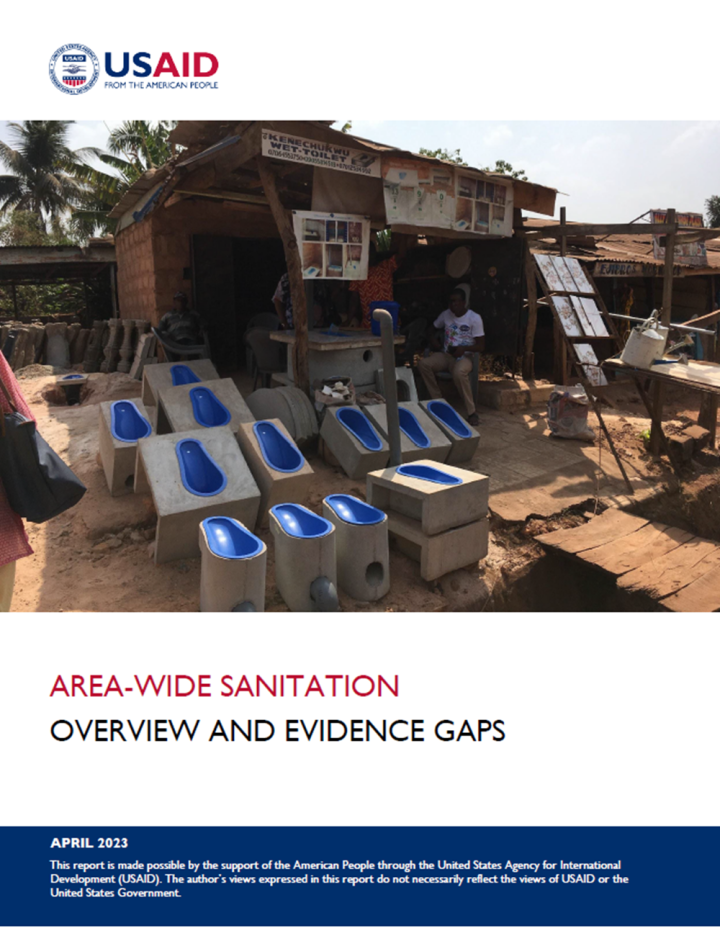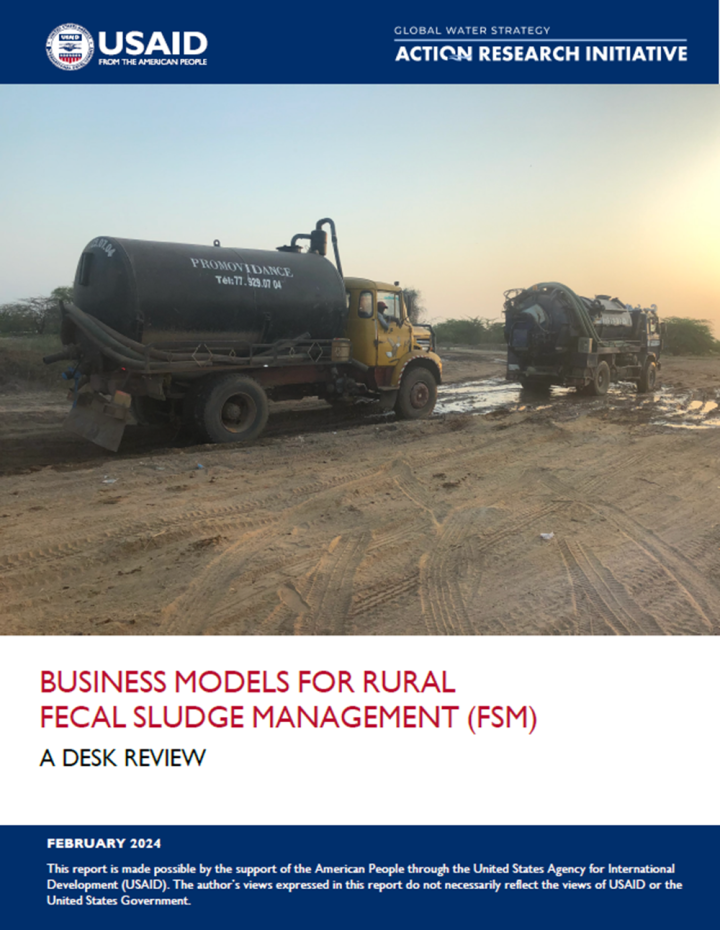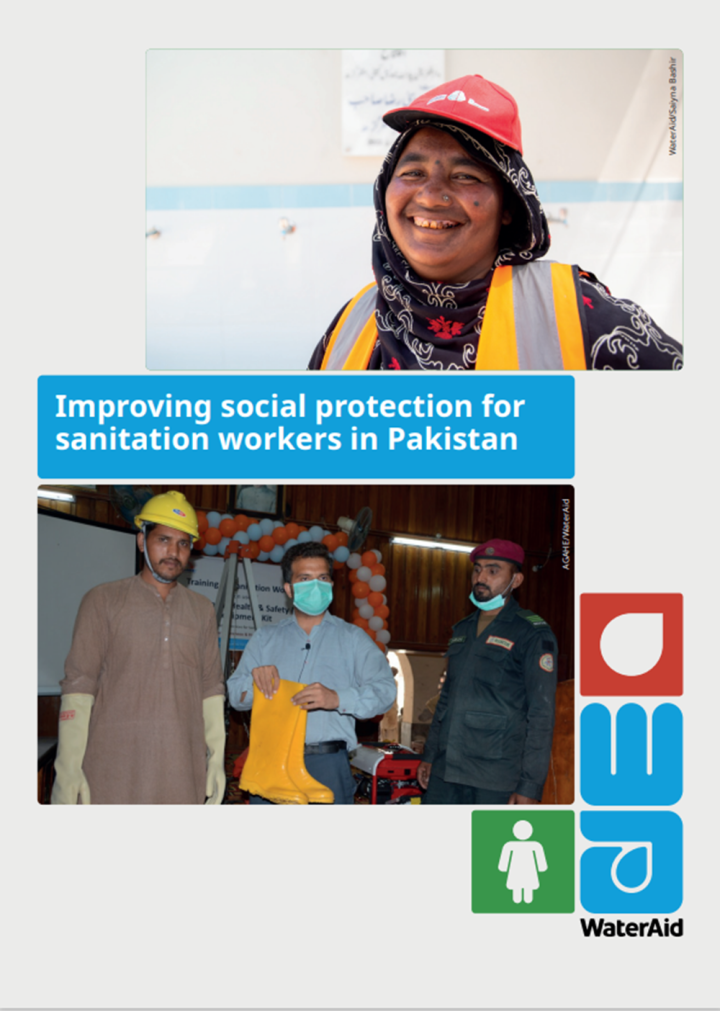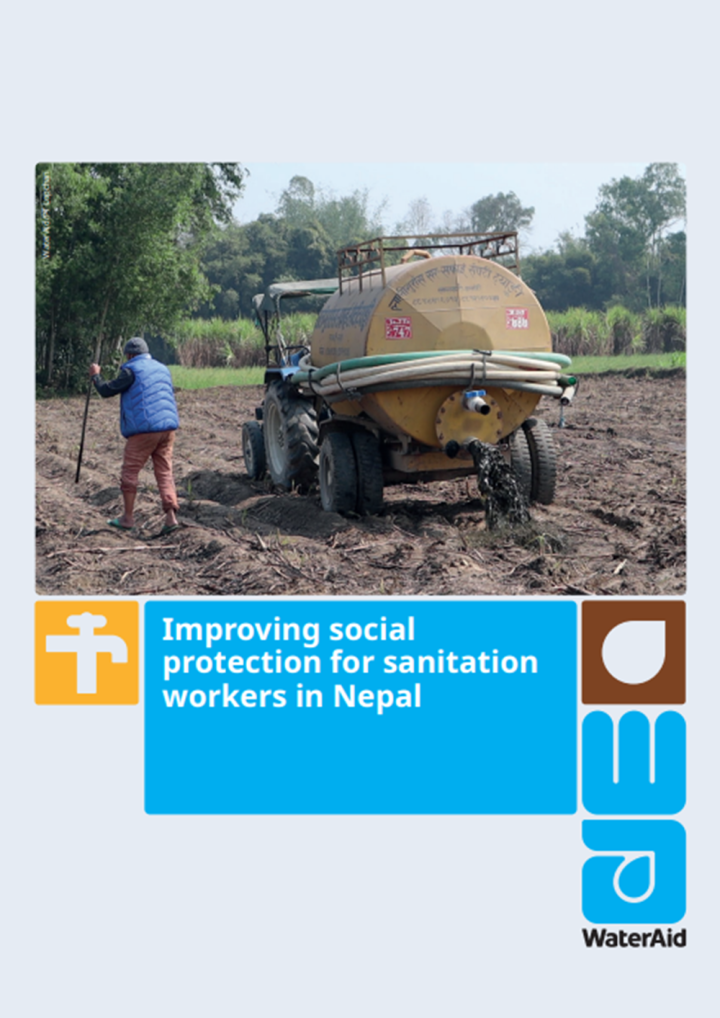Sustainable Sanitation Alliance (2025) The SuSanA Handbook Bylaws and Policies of the Sustainable Sanitation Alliance
Sanitation is dignity, hygiene is health, water is life. They underpin everyday life for everyone who has ever lived and who will ever live - and yet today more than billion people do not even enjoy these basic human rights. Since 2007, the Sustainable Sanitation Alliance has been at the forefront of advocating that sanitation systems should be economically viable, socially acceptable, technically and institutionally appropriate, […]
Sanitation for Millions (2025) Service Offer: Improve Quality of Care in Health Care Facilities Through Localization of the WASH FIT Approach
This service offer provides guidance for the systemic adaptation, localization, and scaling up of the Water and Sanitation for Health Facility Improvement Tool (WASH FIT), developed by World Health Organization (WHO) and United Nations International Children's Emergency Fund (UNICEF), within a dedicated localized and harmonized partnership approach. It was developed by the global project Sanitation for Millions, implemented by the Deutsche Gesellschaft für Internationale Zusammenarbeit […]
Initiative for Sanitation Workers (ISW) (2025) Sanitation workers, 6 years on: Successes, resources and looking forward
In Stockholm World Water Week 2019 the seminal report “Health, safety and dignity of sanitation workers. An Initial Assessment” was launched. It highlighted the appalling working conditions sanitation workers face and set out key areas for action. Accordingly, WaterAid, World Bank, WHO, ILO and SNV formed the Initiative for Sanitation Workers (ISW), a global advocacy alliance. Acknowledging that without a protected and healthy workforce the Sustainable Development […]
SNV and WaterAid (2025) Supporting Sanitation Workers Lessons from the Empowerment Support Fund
Sanitation workers, involved in faecal waste management, face dangerous and oppressive working conditions, as well as stigma. A key challenge weakening their voices is the lack of collective organisation among sanitation workers. Their health, safety and dignity is an issue of human rights, but it is also crucial for achieving the ambitions of safely managed sanitation for all and the promotion of decent work, as […]
World Bank Group, World Health Organization, International Labour Organization, Water Aid (2019) Health, safety and dignity of sanitation workers
"Sanitation workers provide an invaluable service that many of us notice only when confronted with locked, blocked, or filthy toilets; overflowing septic tanks; or beaches contaminated with sewage. These workers are vital to the proper functioning of the sanitation systems that underpin daily life, and many more ae needed to achieve the ambitious agenda of Sustainable Development Goal (SDG) 6. Yet sanitation workers are often invisible […]
World Health Organization (2021) Ending the neglect to attain the sustainable development goals. A Global Strategy on Water, Sanitation and Hygiene to Combat Neglected Tropical Diseases 2021–2030
The Strategy supports the achievement of the targets of the 2021-2030 road map on neglected tropical diseases (NTDs). It sets out the critical role of water, sanitation and hygiene (WASH) for prevention, care and management of NTDs, and the actions needed to ensure that WASH efforts result in improved and sustained health and wellbeing outcomes. The Strategy builds upon collaborations between the WASH and NTD […]
World Health Organization Regional Office for Europe (2022) Water, sanitation and hygiene in health-care facilities: a practical tool for situation assessment and improvement planning
"Adequate water, hygiene and sanitation (WASH) services in health-care facilities, with waste management and environmental cleaning, are fundamental to ensuring high-quality care, safe maternal and child health services, infection prevention and control, and occupational health of health workers. In the light of the scarcity of available data and the lack of baseline information in many countries, World Health Assembly resolution WHA72.7 on WASH in health-care facilities […]
Green Climate Fund (2022) Sectoral guide: Water security
Climate change is evident around the globe, and it requires bold actions now to achieve the Sustainable Development Goals (SDGs) and Paris Agreement. In addition, water is one of the world’s most essential commodities and demand for water service has increased tremendously following population growth, economic development and changing consuming patterns. Facing increasing demand for this scarce resource, the global water business seems to offer […]
Sanitation for Millions, German Toilet Organisation (2024) Service Offer: Toilets Making the Grade® – A School Competition for Self-driven Water, Sanitation, and Hygiene Improvements
This service offer contributes to the achievement of multiple Sustainable Development Goals (SDGs), particularly SDG 6.2 (equitable sanitation), SDG 3 (good health), SDG 4 (quality education), and SDG 5 (gender equality). The Toilets Making the Grade® (TMG) competition helps schools to address sanitation and hygiene challenges through self-assessment, guiding them to meet global and national standards like the 3-star approach. In a playful way, students and […]
Sanitation for Millions (2024) Service Offer: Sustainable Operation and Maintenance of Water, Sanitation and Hygiene Infrastructure in Public Institutions
This service offer contributes to the achievement of multiple Sustainable Development Goals (SDGs), particularly SDG 6.2 (equitable sanitation), SDG 3 (good health), SDG 4 (quality education), and SDG 5 (gender equality). This service offer dives deep into crucial thematic areas necessary for the sustainable operation and maintenance (O&M) of WASH infrastructure. Drawing from successful implementation in Jordan, Pakistan, Uganda, and Colombia, the service offer ensures tangible […]
Sanitation for Millions (2024) Service Offer: Menstrual Hygiene Management – Advocacy on Policy Level and Cooperation with the Private Sector
This service offer contributes to the achievement of various Sustainable Development Goals (SDGs), particularly SDG 6.2 (equitable sanitation), SDG 3 (good health), SDG 4 (quality education), and SDG 5 (gender equality). It focuses on Menstrual Hygiene Management (MHM) at the policy level and in cooperation with the private sector. It provides an overview of essential background information, critical minimum standards, and the necessary steps for implementation. […]
Sanitation for Millions (2024) Service Offer: Menstrual Hygiene Management – Awareness Raising and Knowledge Sharing in Public Institutions
This service offer contributes to the achievement of multiple Sustainable Development Goals (SDGs), particularly SDG 6.2 (equitable sanitation), SDG 3 (good health), SDG 4 (quality education), and SDG 5 (gender equality). It focuses on Menstrual Hygiene Management (MHM) at the community level, especially in public institutions. It provides essential background information, critical minimum standards, and the necessary steps for implementation. The content is informed by the […]
Sanitation for Millions (2024) Service Offer: Construction or Rehabilitation of WASH Infrastructure in Schools
This service offer contributes to the achievement of multiple Sustainable Development Goals (SDGs), particularly SDG 6.2 (equitable sanitation), SDG 3 (good health), SDG 4 (quality education), and SDG 5 (gender equality). It focuses on the construction and rehabilitation of water, sanitation, and hygiene (WASH) infrastructure in schools. It provides essential background information, critical minimum standards, and the necessary steps for implementation. The content is informed by […]
Sanitation for Millions (2024) Service Offer: Construction or Rehabilitation of WASH Infrastructure in Healthcare Facilities
This service offer contributes to the achievement of multiple Sustainable Development Goals (SDGs), particularly SDG 6.2 (equitable sanitation), SDG 3 (good health), and SDG 5 (gender equality). It focuses on the construction and rehabilitation of water, sanitation, and hygiene (WASH) infrastructure in health care facilities. It provides essential background information, critical minimum standards, and the necessary steps for implementation. The content is informed by the practical […]
Sanitation for Millions (2024) Service Offer: Construction or Rehabilitation of WASH Infrastructure in Faith-Based Institutions
This service offer contributes to the achievement of multiple Sustainable Development Goals (SDGs), particularly SDG 6.2 (equitable sanitation), SDG 3 (good health), and SDG 5 (gender equality). It focuses on the construction and rehabilitation of water, sanitation, and hygiene (WASH) infrastructure in faith-based institutions. It provides essential background information, critical minimum standards, and the necessary steps for implementation. The content is informed by the practical […]
Viva con Agua (2021) Football 4 WASH - Manual VcA
Football as a sport is enjoyed by over 2.6 billion people all over the world. In East Africa alone, over 40 million boys and girls, women and men are actively involved in football games, either competitively or as fun games. Football and getting engaged in physical activity in general can provide opportunities for children and adolescents to develop greater agency over their life, to build leadership […]
Crystal Huang, Steven Walker, Adrian Brillantes-Stepper, Carolien van der Voorden (2023) Area-wide sanitation Overview and evidence gaps
The last few decades have witnessed substantial gains in access to sanitation, as nearly 2.4 billion people gained access to improved toilets and open defecation (OD) rates fell 12 percentage-points globally (from 21% to 9%) between 2000 and 2020. Despite this progress, many countries are off track to meet their sustainable development goal (SDG) 6.2 targets. To reach these targets by 2030, a concerted effort […]
Rishi Agarwal, Subhash Chennuri (2024) Business Models for Rural Fecal Sludge Management (FSM)
Over the last decade, basic sanitation coverage in rural areas of low- and middle-income countries has progressed significantly, especially in Asia. Sustaining those resulting gains in human, environmental, and community health, all while progressing toward targets of Sustainable Development Goal 6, requires safely managing the fecal sludge generated in on-site sanitation systems. When latrines are full, some households abandon them and build anew, while others choose […]
Vanita Suneja, Jaison Thomas and Faysal Abbas, with contributions from Andrés Hueso González, Sterenn Philippe, Julie Fisher, Adnan Hakeem, Arif Jabbar. Supported by Bill & Melinda Gates Foundation (2023) Improving social protection for sanitation workers in Pakistan
Sanitation workers play a vital role in maintaining cleanliness and safety within the sanitation chain, a crucial aspect of achieving Sustainable Development Goal (SDG) 6. However, they often face poor working conditions, social and economic marginalization, and significant health risks, including the threat of infection and injury, sometimes leading to fatalities, compromising their dignity and well-being. Enhancing social protection schemes for sanitation workers is essential […]
Vanita Suneja, Jaison Thomas and Faysal Abbas, with contributions from Andrés Hueso González, Sterenn Philippe, Julie Fisher, Seema Rajouria, Tripti Rai. Supported by Bill & Melinda Gates Foundation (2023) Improving social protection for sanitation workers in Nepal
Sanitation workers play a vital role in maintaining cleanliness and safety within the sanitation chain, a crucial aspect of achieving Sustainable Development Goal (SDG) 6. However, they often face poor working conditions, social and economic marginalization, and significant health risks, including the threat of infection and injury, sometimes leading to fatalities, compromising their dignity and well-being. Enhancing social protection schemes for sanitation workers is essential […]
